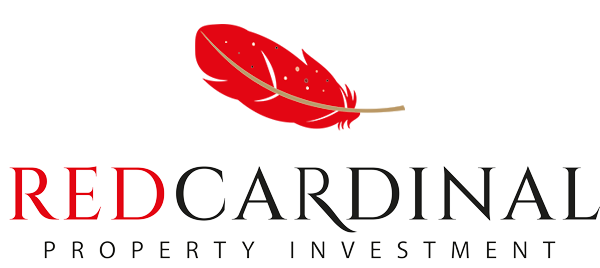Holiday rental properties in the UK are becoming increasingly popular among tourists, providing an opportunity for property investors to generate income from short-term rentals. In this guide, we will provide a brief overview of UK holiday rental properties and highlight the importance of investing in this lucrative market. Our Holiday let investment guide is suitable for seasoned investors or first-time buyers. It provides valuable insights on conducting market research, identifying target areas, setting budgets, understanding legal and regulatory frameworks, and managing your holiday rental property for maximum returns.
Overview of UK Holiday Rental Properties
Holiday rental properties refer to self-catering accommodation that is rented out for short-term stays, typically for vacation purposes. These properties can range from apartments and cottages to villas and holiday homes. The UK is home to a wide range of popular tourist destinations, including coastal towns, countryside retreats, and cities, making it an ideal location for investing in holiday rental properties.
Importance of Investing in Holiday Rental Properties
Investing in holiday rental properties can offer several benefits. Firstly, it provides an opportunity to generate a steady stream of income through short-term rentals. This can be especially appealing for those who are looking for an additional source of passive income. Secondly, holiday rental properties offer the potential for capital appreciation over time. As property values increase, the value of the investment also increases, providing the opportunity for long-term wealth creation.
Conducting Market Research for Your Holiday Let Investment: Key Strategies to Consider
Before investing in holiday rental properties, it is essential to conduct thorough research of the market. This involves identifying the most popular tourist destinations, evaluating demand for holiday rental properties, and identifying target areas for investment.
Setting a Budget for Investment: Key Tips from Our Holiday Let Investment
Setting a budget for investment is critical in determining the type and location of holiday rental properties to invest in. The budget should include the cost of the property, any necessary renovations, and ongoing maintenance costs.
Legal and Regulatory Requirements
Investing in holiday rental properties requires an understanding of the legal and regulatory framework for holiday rental properties in the UK. This includes obtaining necessary licenses and permits, complying with health and safety regulations, and ensuring the property meets building codes.
Property Management
Effective property management is crucial in ensuring the success of a holiday rental property investment. This involves finding reliable cleaners and maintenance staff, managing bookings, and advertising the property.
Holiday Let Investment Guide: Researching the Market
Before investing in holiday rental properties in the UK, it is crucial to conduct thorough market research to identify the most profitable target areas and evaluate the demand for holiday rental properties. In this guide, we will discuss how to conduct market research, identify target areas, and evaluate demand for holiday rental properties.
Conducting Market Research for Your Holiday Let Investment: Key Strategies to Consider
Conducting market research is a critical step in identifying the most profitable target areas for investment. This involves gathering data on popular tourist destinations, including historical data on occupancy rates, average rental prices, and seasonal trends. It is also important to research the competition, including other holiday rental properties in the area and hotels.
Identifying Target Areas for Holiday Let Investment Opportunities
Identifying target areas for investment is the next step in conducting market research. This involves evaluating the data gathered during the research phase to identify areas that offer the most potential for a return on investment. The target area should have high demand for holiday rental properties, low competition, and a desirable location.
Evaluating Demand for Holiday Rental Properties
Evaluating demand for holiday rental properties is crucial in determining the potential profitability of an investment. This involves gathering data on the number of tourists visiting the target area, the length of their stay, and their accommodation preferences. It is also important to research the type of holiday rental properties in demand, such as apartments, cottages, or villas.
Factors Affecting Demand
There are several factors that can affect the demand for holiday rental properties in a particular area. These include the location, accessibility, nearby attractions, and seasonality. For example, coastal towns may experience high demand during the summer months, while countryside retreats may be more popular during the autumn and winter months.
Market Trends to Watch in Your Holiday Let Investment
Understanding market trends is essential in evaluating demand for holiday rental properties. It is important to research industry trends and predictions, such as the impact of COVID-19 on the travel industry and changes in consumer preferences.
Financial Considerations
Once you have conducted market research and identified target areas for investment, the next step is to set a budget for investment, explore financing options, and calculate the potential return on investment (ROI). In this guide, we will discuss these important steps in detail.
Setting a Budget for Investment: Key Tips from Our Holiday Let Investment
Setting a budget for investment is crucial in ensuring that the investment is financially viable and profitable. This involves evaluating the cost of purchasing a holiday rental property, including legal fees, taxes, and any necessary renovations. Further more, it is important to set a realistic budget that takes into account all potential costs, including ongoing maintenance and management fees.
Traditional Mortgage Financing Options to Consider in Your Holiday Let Investment
Financing options for holiday rental properties include traditional mortgage financing, specialist holiday let mortgages, and buy-to-let mortgages. Each financing option has its own pros and cons, and it is important to research and compare the different options to identify the best fit for your investment.
Exploring Traditional Mortgage Financing
Traditional mortgage financing involves borrowing money from a bank or building society to purchase the holiday rental property. The loan is secured against the property and typically requires a deposit of 25% or more. While this option offers lower interest rates and longer repayment terms, it may not be suitable for holiday rental properties that do not meet standard residential mortgage criteria.
Holiday Let Investment Guide: Understanding Specialist Holiday Let Mortgages
Specialist holiday let mortgages are designed specifically for holiday rental properties and offer more flexibility than traditional mortgage financing. These mortgages typically require a smaller deposit and allow for more lenient affordability checks. However, they may have higher interest rates and fees.
Buy-to-Let Mortgages: A Key Consideration in Your Holiday Let Investment
Buy-to-let mortgages are another financing option for holiday rental properties. These mortgages are designed for properties that will be rented out to long-term tenants but can also be used for holiday rental properties. They typically require a higher deposit and may have stricter affordability checks. However, they may offer lower interest rates and longer repayment terms.
Factors Affecting ROI in Holiday Let Investments
Calculating the potential return on investment (ROI) is an essential step in determining the profitability of an investment. This involves evaluating the expected rental income and deducting all potential costs, including mortgage payments, maintenance fees, and management fees.
Factors Affecting ROI
There are several factors that can affect the ROI of a holiday rental property, including the location, occupancy rates, rental prices, and seasonal trends. Additionally, it is important to research and evaluate these factors to ensure that the investment is financially viable.
Holiday Let Investment Guide: Legal and Regulatory Requirements
Investing in holiday rental properties can be a lucrative investment opportunity, but it is important to understand the legal and regulatory framework governing these properties in the UK. In this guide, we will discuss the key legal and regulatory requirements that must be followed to operate a holiday rental property in the UK.
Understanding the Legal and Regulatory Framework
Holiday rental properties in the UK are subject to various legal and regulatory requirements that must be followed to ensure compliance with the law. These include the following:
- Planning Permission: Holiday rental properties may require planning permission from the local council before they can be used for holiday rentals. It is important to check with the local council to determine whether planning permission is required.
- Insurance: It is important to obtain adequate insurance coverage for the holiday rental property, including liability insurance, contents insurance, and buildings insurance. This will protect the property owner from potential legal and financial liabilities.
- Taxation: Holiday rental properties are subject to various taxes, including income tax, council tax, and business rates. It is important to understand the tax obligations associated with holiday rental properties to avoid potential penalties and fines.
Holiday Let Investment Guide: Obtaining Necessary Licenses and Permits
In addition to complying with the legal and regulatory framework, holiday rental properties may require specific licenses and permits to operate legally in the UK. These include the following:
- Gas Safety Certificate: Holiday rental properties must have an up-to-date gas safety certificate issued by a Gas Safe registered engineer.
- Electrical Safety Certificate: Holiday rental properties must have an up-to-date electrical safety certificate issued by a qualified electrician.
- Fire Safety Regulations: Holiday rental properties must comply with fire safety regulations, including installing smoke alarms and carbon monoxide detectors.
- HMO License: If the holiday rental property is a house in multiple occupation (HMO), it may require an HMO license from the local council.
Complying with Health and Safety Regulations
Operating a holiday rental property in the UK requires compliance with various health and safety regulations to ensure the safety of guests. These include the following:
- Furniture and Furnishings: Holiday rental properties must comply with the Furniture and Furnishings (Fire) (Safety) Regulations 1988, which require all upholstered furniture to be fire-resistant.
- Water Supply: Holiday rental properties must have a safe and adequate supply of drinking water.
- Legionella Risk Assessment: Holiday rental properties must have a legionella risk assessment conducted by a qualified assessor to identify and manage the risks associated with Legionnaires’ disease.
Holiday Let Investment Guide: Property Management
Once a holiday rental property is ready for operation, property owners must decide whether to manage the property themselves or hire a property management company. They must also find reliable cleaners and maintenance staff and develop an effective strategy for managing bookings and advertising the property. In this guide, we will discuss the key considerations for managing a holiday rental property in the UK.
Hiring a Property Management Company or Managing the Property Oneself
Managing a holiday rental property can be a time-consuming and demanding task. Property owners must decide whether to manage the property themselves or hire a property management company. Considerations include the following:
- Time Commitment: Managing a holiday rental property can be a full-time job, especially during peak holiday seasons. Property owners must decide whether they have the time and resources to manage the property themselves.
- Expertise: Property owners must have a solid understanding of property management, including marketing, customer service, maintenance, and legal compliance. Property management companies have experience and expertise in these areas, which can be valuable to property owners.
- Cost: Property management companies charge a fee for their services, which can impact the profitability of the holiday rental property. Property owners must determine whether the cost of hiring a property management company is justified by the benefits they provide.
Holiday Let Investment Guide: Finding Reliable Cleaners and Maintenance Staff
A critical aspect of managing a holiday rental property is finding reliable cleaners and maintenance staff. Moreover, considerations include the following:
- Quality: The quality of the cleaning and maintenance services provided can impact the satisfaction of guests and the reputation of the holiday rental property. Property owners must find reliable and high-quality cleaners and maintenance staff to ensure the property is clean and well-maintained.
- Availability: Property owners must ensure that cleaners and maintenance staff are available when needed, including on short notice. This is particularly important during peak holiday seasons, when demand for cleaning and maintenance services may be high.
- Cost: The cost of cleaning and maintenance services can impact the profitability of the holiday rental property. Property owners must balance the cost of these services with the benefits they provide, including guest satisfaction and property maintenance.
Managing Bookings and Advertising the Property
Managing bookings and advertising the holiday rental property is a critical aspect of property management. Considerations include the following:
- Booking Platforms: Property owners can advertise their holiday rental property on a variety of online booking platforms, including Airbnb, Booking.com, and HomeAway. It is important to choose the right booking platforms to reach the target audience and maximise bookings.
- Pricing Strategy: Property owners must develop an effective pricing strategy that balances demand and profitability. This includes setting rates that are competitive with other properties in the area while ensuring that the property remains profitable.
- Customer Service: Providing excellent customer service is crucial to the success of a holiday rental property. Property owners must be responsive to guest inquiries and complaints and ensure that guests have a positive experience during their stay.
Conclusion
Investing in UK holiday rental properties can be a lucrative venture for those who are willing to put in the effort. With the potential for high rental yields and capital appreciation, it’s no wonder that many people are considering this option. In this piece, we will provide a recap of the key points discussed in the previous sections and highlight the potential benefits.
Holiday Let Investment Guide: Recap of Key Points in the Holiday Let Investment
In the previous sections, we discussed the various aspects of investing in UK holiday rental properties. We talked about the importance of conducting market research, setting a budget, understanding the legal and regulatory framework, and hiring a property management company. We also touched on the potential risks involved and how to manage them effectively. In summary, the key points to remember when investing in UK holiday rental properties are:
- Conduct market research to identify target areas and evaluate demand.
- Set a budget and explore financing options to calculate potential ROI.
- Understand the legal and regulatory framework and obtain necessary licenses and permits.
- Hire a property management company or manage the property oneself.
- Find reliable cleaners and maintenance staff and manage bookings and advertising.
Potential Benefits of Investing in UK Holiday Rental Properties
Investing in UK holiday rental properties can offer several benefits. Firstly, holiday rentals can generate higher rental yields compared to traditional buy-to-let properties. Additionally, with the increasing popularity of staycations, there is a growing demand for holiday rental properties across the UK. Secondly, holiday rental properties have the potential for capital appreciation, particularly in areas with high tourist footfall. Thirdly, owning a holiday rental property can offer a personal benefit of having a holiday home to use for personal use or to rent out to family and friends.
In addition to financial benefits, investing in UK holiday rental properties can also provide a sense of satisfaction as it offers an opportunity to provide a memorable holiday experience for guests. It can also contribute to the local economy by creating jobs and boosting tourism.
In conclusion, investing in UK holiday rental properties can be a rewarding and profitable venture, provided that proper research and planning are conducted. By understanding the key points and potential benefits, investors can make informed decisions and maximise their returns. All in all, with the increasing demand for holiday rental properties in the UK, now may be the perfect time to explore this investment opportunity.
Find out more about what’s happening in the property market in our News column.










